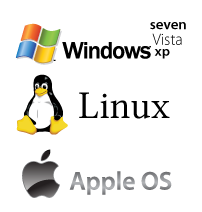It’s a tiny bit of news. Time Warner is no longer letting Netflix buy DVDs of HBO original programming at a discount. Netflix now has to pay retail prices on the open market instead of wholesale to send HBO DVDs through the mail.
This doesn’t change the availability of HBO TV and movies on Netflix; Netflix will still buy them. And it doesn’t change how much customers pay for a DVD plan. So why should anyone care about what a company pays its suppliers? Why does this matter?
It matters because HBO isn’t just a supplier to Netflix. HBO and Netflix are actually in the same business, and they have been for a long time. They are both in the monthly video content delivery business. They offer a steady stream of entertainment for somewhere between $8 and $20 per month. You need a cable subscription to add HBO; you need broadband internet to add Netflix.
In other words, Netflix isn’t a cable company; Netflix is a video channel, with aspirations to become a first-rate video channel at the level of HBO, if they’re not there already. And HBO badly wants Netflix to stay out of that business. In fact, HBO would have no particular problem watching Netflix bleed to death, just on general principle.
Long before most of us began to see that Netflix’s booming stock price and serendipitous catalog were papering over genuine flaws in its long-term business model, Time Warner CEO Jeff Bewkes was outspoken about them. He famously poked fun at claims that Netflix would take over the entertainment industry (“Is the Albanian army going to take over the world? I don’t think so”). He sharply criticized Netflix’s deal with fellow pay-TV company Starz, vowing to never give away HBO’s content on Netflix’s “measly” terms. (Sure enough, Starz refused to sell its streaming rights on Netflix’s terms — instead demanding to be treated like HBO.)
Bewkes rallied other TV channels and movie studios to charge more for streaming rights and push for longer windows between DVD releases for sale and rental availability through services like Netflix. When 28 days weren’t enough, Time Warner pushed Netflix and the other rental companies to 56 days.
When Netflix sought to bid to stream original content and movies in the pay TV window, Bewkes and HBO made sure that Netflix paid a mint, shelling out a premium for exclusivity that Netflix neither needs nor particularly wanted. HBO advertises its exclusive content; Netflix is just Netflix.
Then, finally, Bewkes found a way for Time Warner to work with Netflix to show some of its television programming. Not for the HBO content so many Netflix subscribers were pining for, and with which Time Warner had successfully built up its HBO Go platform. Instead, it was for old TV shows from the CW, for which Time Warner couldn’t find another syndication partner.
The goal is simple and consistent. Push Netflix to its breaking point, where it can no longer bid on first-rate content and price itself competetively for customers’ last $10. Or relegate Netflix to the subordinate role of a digital syndication channel aggregating the old, the weird, and the unprofitable. Better yet, both.
Bewkes spelled this out on a conference call this spring:
Our view of Netflix has been very consistent. I’ve tried at times to be humorous about it, sometimes to make a point, so let me be clear: We think there’s definitely a role for subscription VOD services, library services, and Netflix in the ecosystem.
What is the role? Clearly it’s a way to give consumers access to a deep library of content that they couldn’t easily get before, particularly older shows… There’s been some utility for viewers in being able to get serialized shows that don’t play as well on traditional cable networks or in syndication.
And because SVOD [subscription video on demand] monetizes some content that couldn’t be monetized before, and it monetizes some content better than it was monetized before, particularly the older library stuff, then it can add money to the ecosystem. And that’s good for everybody.
In that properly subordinate spirit, Bewkes will continue to let Netflix buy HBO’s DVDs — at the same price and at least one month later than the average customer on the street.
Why do DVDs matter? Even though Netflix may not necessarily be so keen on that side of the business as it once was, over the last decade, DVDs have become a tidy revenue stream for HBO. They’ve drawn both hardcore fans who watched every episode of the series live and want to collect and rewatch them, and those who came late to much-loved series like Deadwood or The Wire, either because they were never subscribers or just managed to miss the orginal airdates.
Now, fewer of the core HBO subscribers want or need those DVDs — precisely because HBO Go took a page out of Netflix’s playbook and filled up its streaming channel with its own back catalog.
That means that apart from the super-fans, the primary audience for those back DVDs are nonsubscribers. Most likely, Netflix subscribers. And Bewkes wants to make sure they pay full price.
Authors:


















